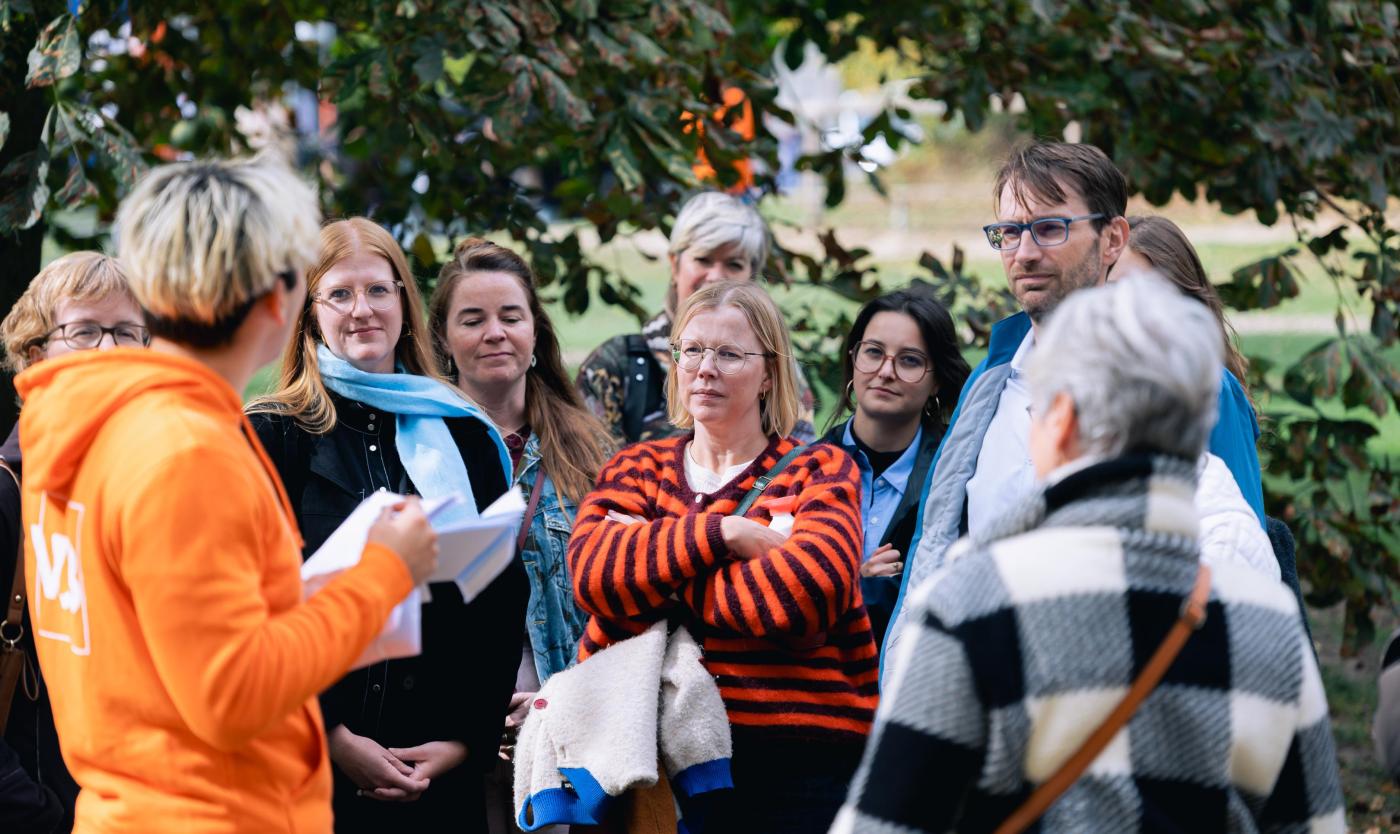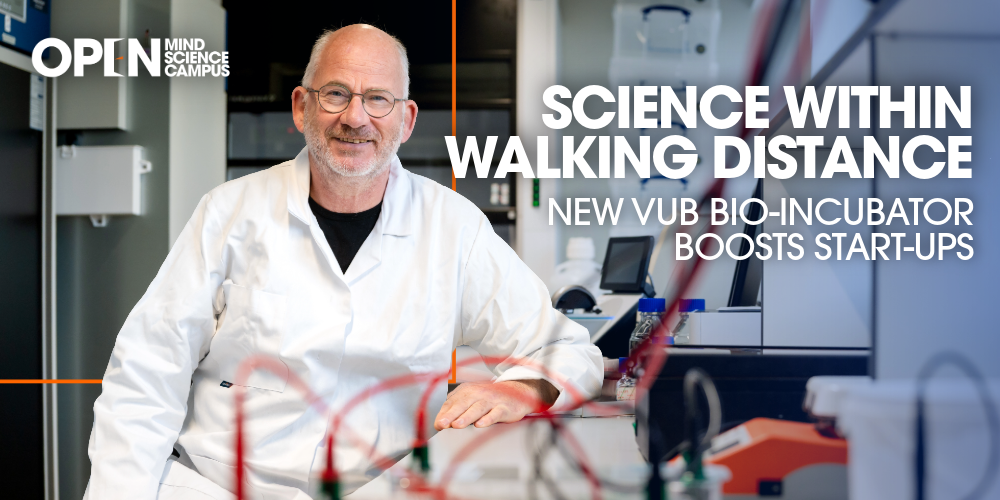
The iconic red blocks of the Willy Van Der Meeren student halls are ready for a second life. The brand-new Bio Incubator Brussels (BIB) now offers fully equipped lab and office spaces for startups in biotechnology, pharmaceuticals and health tech. Renowned molecular biologist and driving force behind the new incubator, Professor Jan Steyaert, is not only impressed by the facilities. “In terms of location, this is a dream. Most bio-incubators are hidden away on industrial estates, but ours sits in the heart of the VUB campus, within walking distance of trains, trams, cafés and even a swimming pool.”
The colourful yellow, blue, grey and red student halls on the Etterbeek campus were once affectionately called a “village within a village”. Today, the red blocks have been transformed into move-in-ready offices and laboratories for the new Bio Incubator Brussels. Most of the units are still empty, waiting for new tenants. David Moreels (Incubator Manager at VUB) gives us a tour. After three turns, we’re already lost. “It’s not your poor sense of direction,” he laughs. “Architect Willy Van Der Meeren deliberately designed this student village as a maze, in the rebellious spirit of May ’68. He added random entrances, staircases, paths and hidden corners that only students really knew how to navigate. That way, they could quickly escape when police came chasing during protests.”
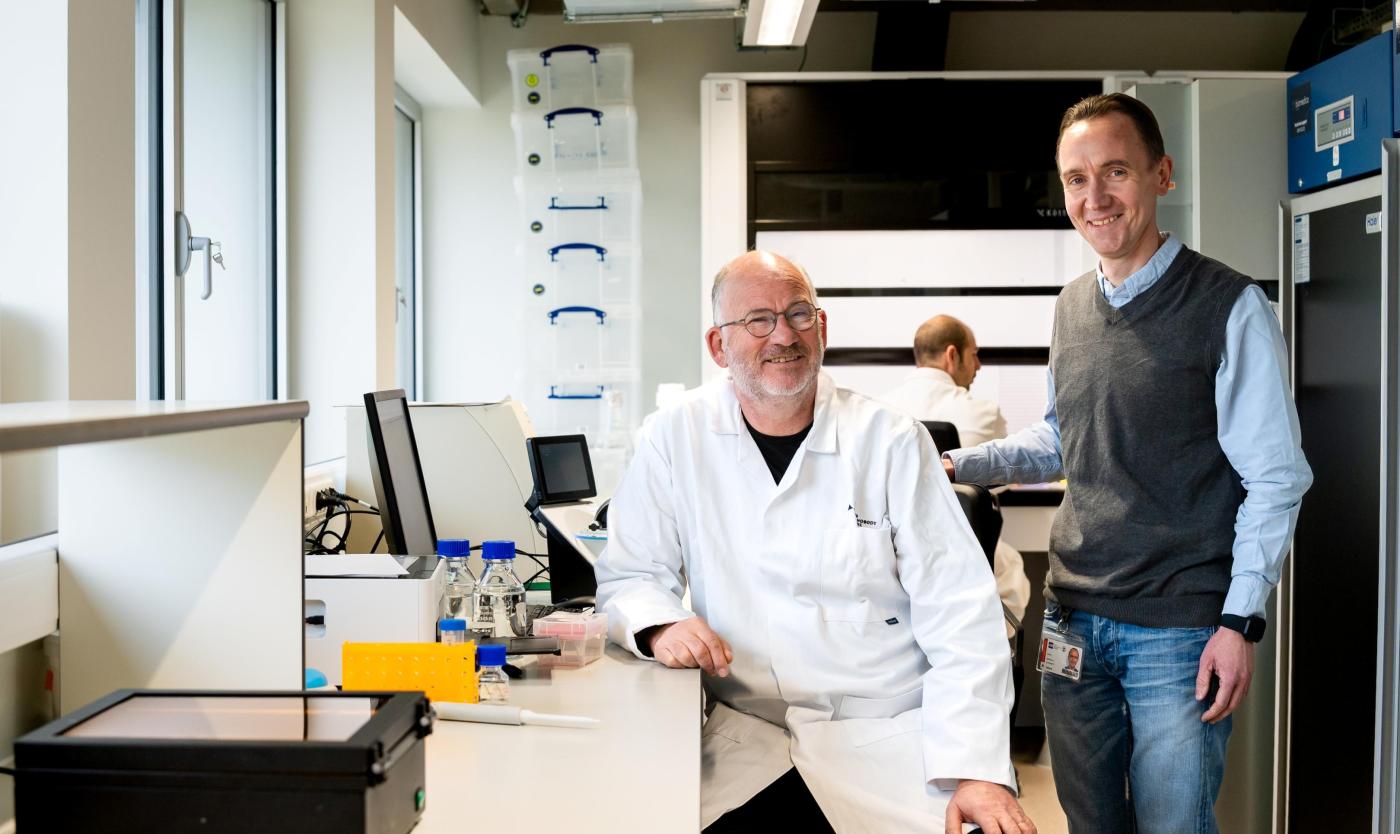
Jan Steyaert (Scientific Director, VIB-VUB Centre for Structural Biology) and David Moreels (Incubator Manager, VUB)
True or not, it’s a great story. Only the concrete shells and iconic colours remain from those turbulent times. Inside, the buildings have been completely transformed. Four years ago, the VIB-VUB Centre for Structural Biology, led by Professors Jan Steyaert and Han Remaut, was the first to occupy one of the red blocks. Its showpiece is a five-metre-high cryo-electron microscope, capable of imaging even the smallest proteins. Now, with the new bio-incubator, another block has found a new purpose.
“From now on, we can incubate our own spin-offs closer to home”
Professor Jan Steyaert (Scientific Director, VIB-VUB Centre for Structural Biology):
“A bio-incubator is a space where startups in biotechnology, pharma and health technology can take their first steps. They don’t need to immediately invest in costly infrastructure and can grow or scale down flexibly. VIB, a life sciences research institute that combines cutting-edge research with innovation, already manages more than 50,000 m² of bio-incubators in Ghent and Leuven. The new Bio Incubator Brussels is the very first at VUB. We’ve been searching for a suitable location for ten years, so we’re thrilled this has finally become reality. Funding comes from VIB, VUB and the VIB-VUB Centre for Structural Biology, with additional support expected from the European Regional Development Fund (ERDF). Former Vice-Rector Hugo Thienpont and General Manager Nic Van Craen, among many others, played a key role in making this happen.”
The Bio Incubator Brussels includes six laboratory units and seven office modules, together covering about 2,000 m². Small but powerful, says Steyaert. “As a VUB-er, I may be biased, but honestly—this location is unbeatable. Most bio-incubators are on industrial estates, only accessible by car. Ours is in the middle of the VUB campus, within walking distance of the train station, tram stop, restaurants, cafés and a swimming pool. In today’s talent race, those things matter.”
Startups moving in here are right in the heart of Europe, close to key public and private decision-makers. And if they need advice or a sounding board, they can simply knock on the door of their neighbours at the VIB-VUB Centre for Structural Biology.
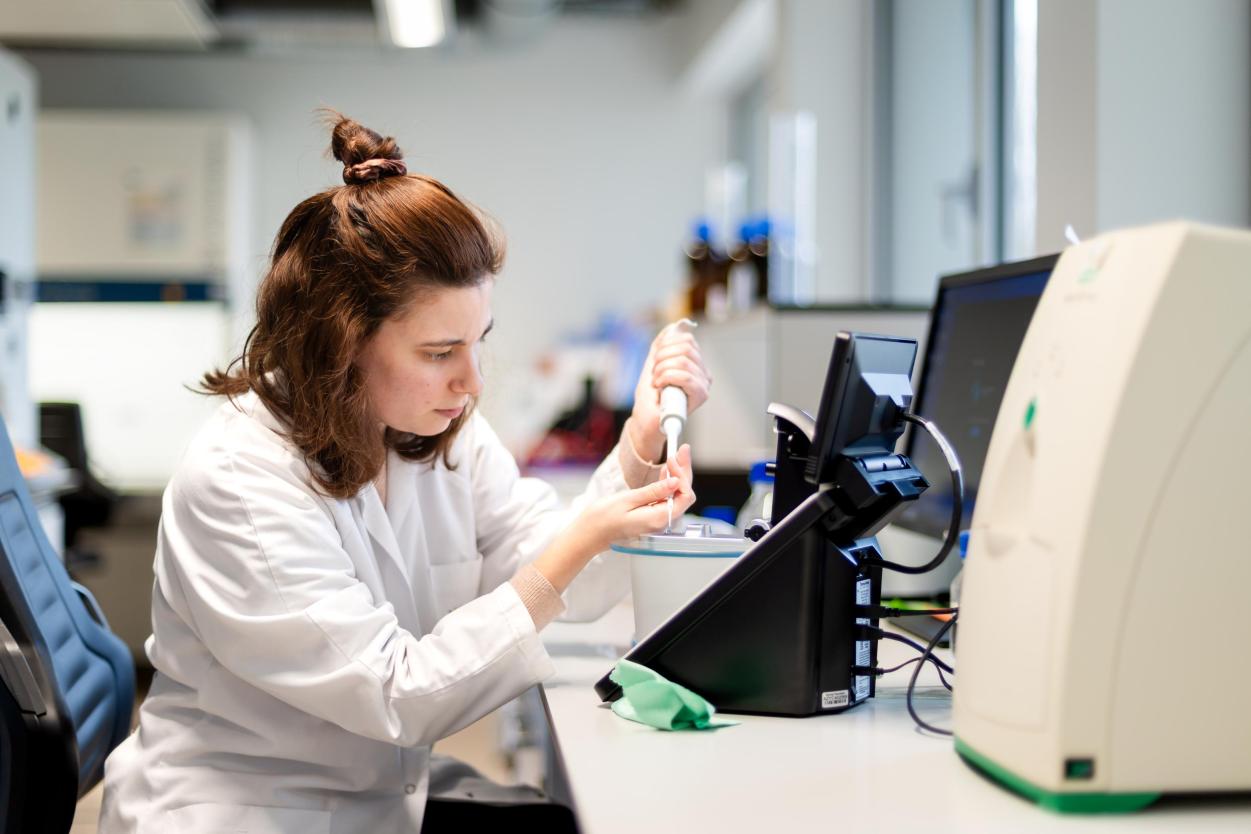
“Our research centre has been pioneering nanobodies© for more than 25 years,” Steyaert explains. “These unique antibodies, derived from llamas, have opened the door to countless innovations in medicine, veterinary science and crop protection. The knowledge has already fuelled spin-offs like Ablynx, Biotalys and Confo Therapeutics.”
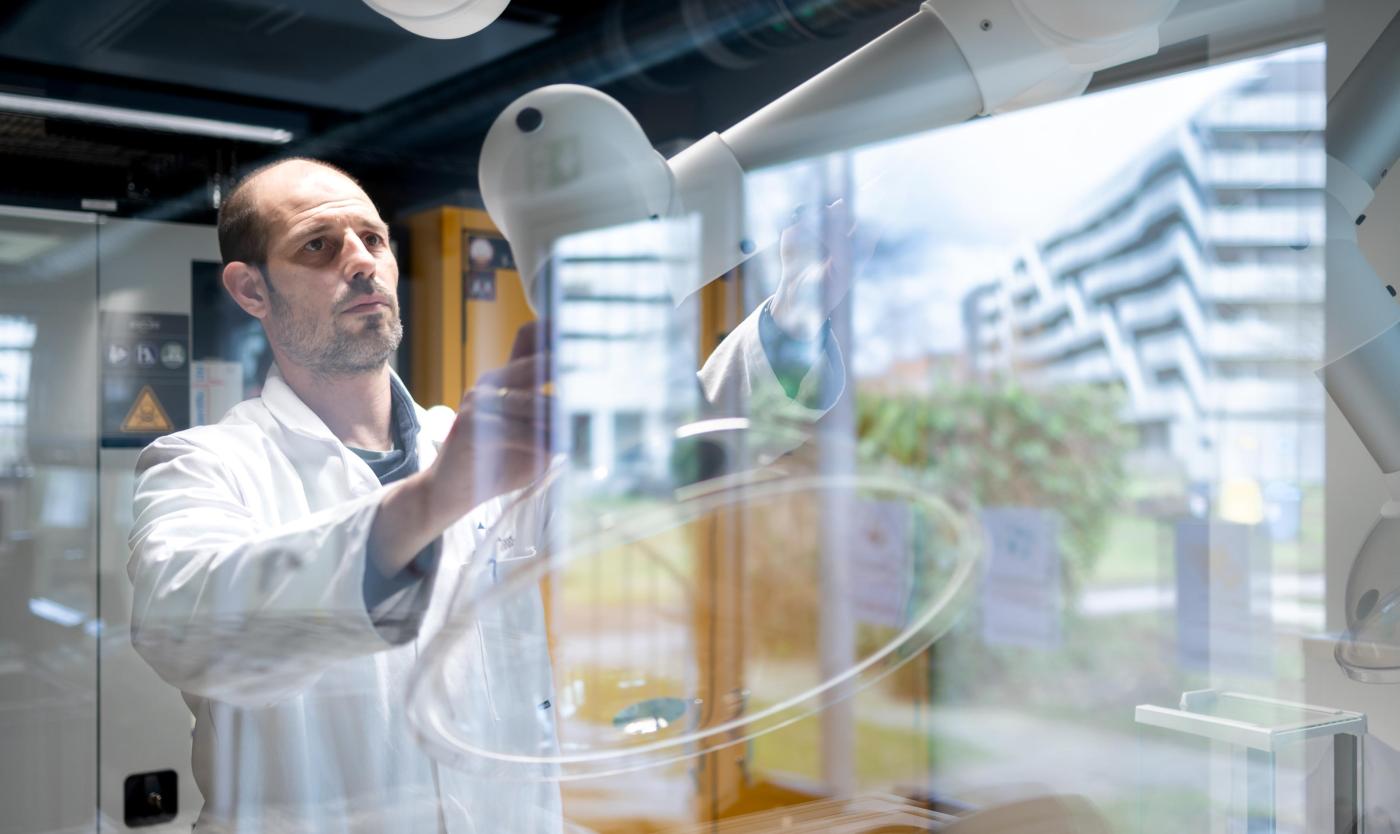
The success stories speak for themselves. Ablynx, co-founded by Steyaert, was acquired by French pharma giant Sanofi in 2018 for €4 billion. “All of these commercial successes are rooted in knowledge and technology developed here at VUB. But none of them actually grew on our campus, because until now we didn’t have the facilities. That bottleneck meant VUB startups were always founded and scaled elsewhere. The new Bio Incubator Brussels finally changes that. From now on, we can incubate our own spin-offs closer to home.”
Two of the six labs are already in use, occupied by the VIB Nanobody Core Facility, which provides contract research for both academic groups and companies. Their lab technicians develop nanobodies using blood from llamas immunised with specific substances.
Steyaert: “By summer, we’ll move in again ourselves with a brand-new spin-off from the VIB-VUB Centre for Structural Biology—a pharma company based on nanobody technology. That’s all I can say for now.”
Moreels adds: “There’s plenty of interest, also from companies working on other technologies. We’ll soon organise a guided tour, and I expect a lot of enthusiasm. Our goal is to fill at least one lab per year—but faster is always welcome.”
“The time of the lone genius is over”
What Steyaert hopes for most is a diverse mix of startups that dare to think beyond the science of today. “This incubator should be a fertile ground for collaboration and cross-pollination. The era of the lone genius with one bright idea that changes the world is over. Science today is multidisciplinary. The best ideas are often born at the coffee machine, where experts from different fields share insights.”
He illustrates this with a story: “Once, I was talking to an American biochemist from Stanford. For 20 years, he’d been struggling to capture the adrenaline receptor of the human body because it was so mobile. I suggested creating a nanobody that could lock it in place. He said: if you can pull that off, I’ll win the Nobel Prize. That chemist was Brian Kobilka. Two years later, he did win it—with thanks to our nanobodies.”
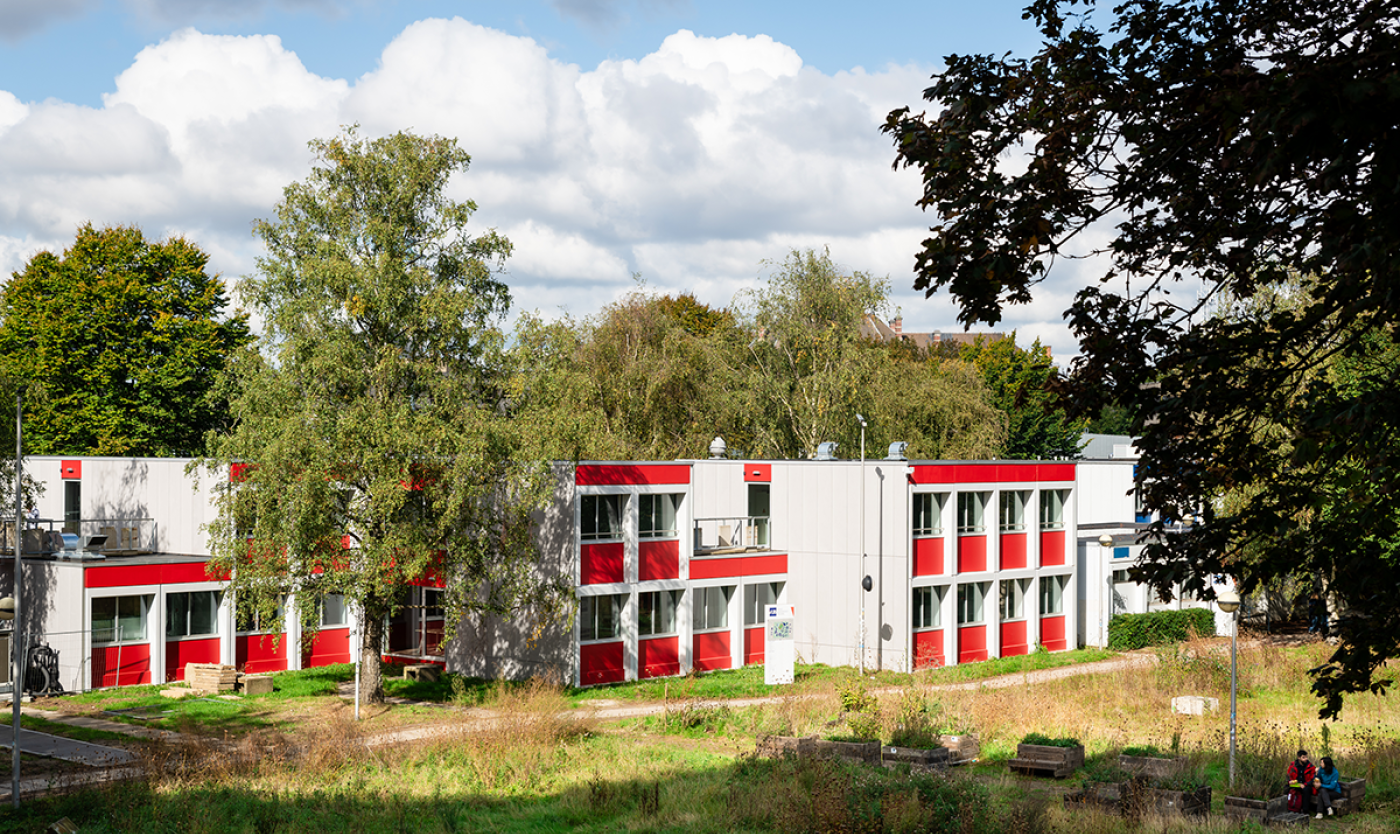
More info or a visit: https://www.vubtechtransfer.be/bio-incubator-brussels-bib

